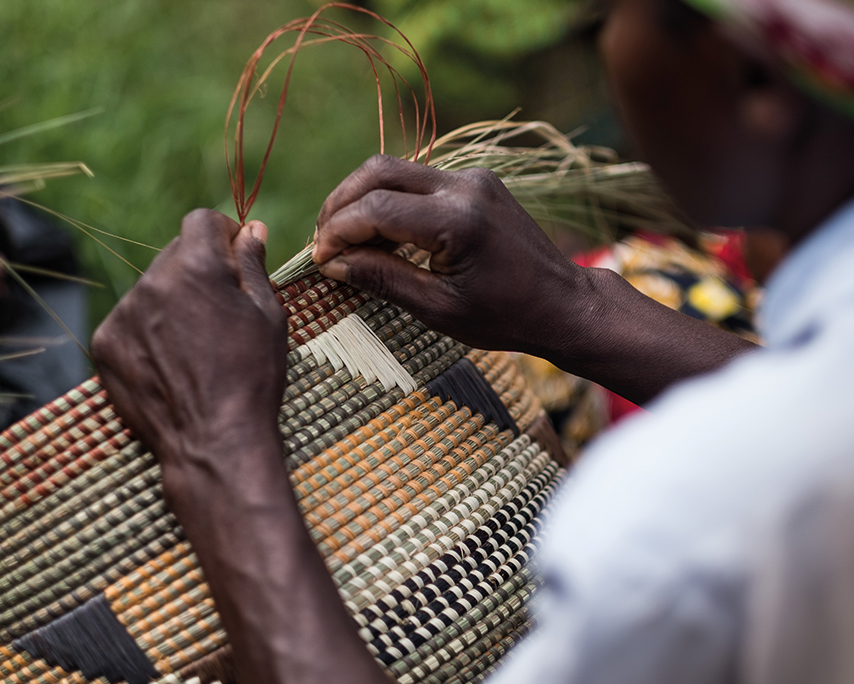Reviving women’s traditional knowledge in the zero-waste movement
Women have long been custodians of sustainable living, passing down knowledge that aligns with zero-waste principles. Across cultures, they have led resource management, efficient food systems, and ecological conservation. It is essential to restore these traditional skills to encourage resilience in the zero-waste movement. These skills offer time-tested methods to reduce waste, preserve resources, and build sustainable communities. Additionally, this year’s International Day of Zero Waste is an opportunity to highlight women’s crucial role in sustainable practices and waste reduction.
In traditional societies, women played a key role in minimising waste and maximising efficiency. Composting, for instance, has been practised for centuries, using food scraps, animal manure, and crop rotation to enrich the soil, principles now echoed in modern organic farming. Textiles were never disposable; fabrics were repaired, repurposed, or transformed into new items, much like today’s upcycling movements that reinvent old garments into fashionable, functional pieces.
Before mass-produced plastics, communities relied on biodegradable packaging like banana leaves, clay pots, and woven baskets, early versions of today’s bioplastics. Many traditional societies embraced circular economies, repurposing waste within communities. Food scraps were fed to livestock or used as fuel, ensuring nothing was wasted. Modern zero-waste movements adopt similar concepts, promoting localised circular economies to extend resource lifecycles.
While contemporary zero-waste strategies often focus on high-tech solutions such as advanced recycling, biodegradable materials, and AI-driven waste management, they sometimes overlook the wisdom of ancestral practices. Indigenous communities have long lived sustainably through low-waste lifestyles, resource efficiency, and circular economies. Integrating these traditional methods with modern innovations can create a more holistic and practical waste-reduction framework. Beyond restoring traditional skills, empowering women as decision-makers is key to systemic change in the zero-waste movement. Women have historically led sustainable practices, and when given leadership roles, they drive large-scale shifts in policies, business models, and community engagement.
Women entrepreneurs are at the forefront of zero-waste solutions, from eco-friendly product development to sustainable fashion and package-free stores. Their leadership promotes ethical sourcing, minimal-waste production, and responsible consumption. Supporting these enterprises through funding, mentorship, and networking expands their impact and inspires broader societal change.
Women’s cooperatives are vital to sustainability, especially in rural and marginalised communities. These cooperatives promote waste reduction by producing biodegradable products, managing local recycling initiatives, and creating sustainable livelihoods through upcycling. Organised collective efforts develop innovative, community-driven zero-waste solutions, making sustainable practices more accessible and practical.
There is a greater need for women to access education, training, and financial resources to maximise their impact. Workshops and leadership programmes could equip them with the knowledge to implement zero-waste strategies effectively. Microloans, grants, and investment opportunities enable them to launch and expand sustainable businesses and initiatives. Knowledge-sharing platforms and mentorship networks also help women scale their efforts and reach wider audiences.
Restoring and valuing women’s traditional knowledge in sustainability is more than preserving cultural heritage. It is a practical strategy for strengthening the global zero-waste movement. Recognising their expertise, integrating it with modern innovations, and empowering women as sustainability leaders fosters resilience, reduces waste, and creates a more sustainable future.
It is important to note that International Day of Zero Waste and the zero waste movement are more than adopting new technology. It is also about revitalising effective traditional practices for long-term sustainability. Since women have historically implemented zero-waste practices, they need to be educated, given financial support, and encouraged to participate in community-driven initiatives to enhance their knowledge and skills in sustainable living.



